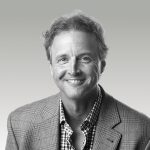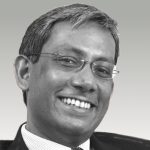Podcast Themes
Multiple perspectives on a topic that you are curious about!
Bill Burnett speaks about the idea of coherence and how we all can strive to design a coherent life. He also discusses the markers of a coherent life.
Neeraj Aggarwal speaks about how he has manage the intense work life along with the demanding career that his wife Priyanka also pursues (also at BCG).
Neeraj Aggarwal speaks about how he has tuned into the vital few things that energize him (good conversations with good people, kids, sport, Plaksha). He speaks about how he has been intentional in architecting this portfolio.
Ricardo Sunderland speaks about how we often end up having a shield and adopting a different persona at work and how that can drain our energy and come in the way of truly bringing our full self to work.

Christopher Clarey speaks about Roger’s ability to context switch instantaneously from one situation to another. He also speaks about how Roger decided to declutter his plate by choosing to play fewer tournaments when he knew that he could get the ATP points he needed by doing will in lesser number of tournaments.

Michiel Kruyt speaks about the criticality of rest and recovery for a leader to be effective. He speaks about how the recovery period could actually spark some creativity and new possibilities.

Manjiri Jaruhar speaks about how she and her husband (also a batchmate from National Police Academy) juggled their careers and personal lives given the pulls and pressures at various points in time.

Ravi Venkatesan speaks about how we could think about measuring our life. He speaks about how he has gone about discovering what makes him distinctive and chosen the various initiatives that he has participated in.

Ayse Birsel speaks about her origins growing up in Turkey in a family of lawyers. She speaks about how she moved towards architecture and subsequently into Industrial Design. She goes on to describe how the Financial Crisis of 2008 got her started in the space of Life Design. Related Insights from: Bruce Feiler-70.07-Shape-Shifting instead of Resilience (https://playtopotential.com/audio/742)

Rajiv Vij speaks about why he chooses to work with the leader as a whole and not limit himself to the professional elements. He speaks about how some of these elements are intertwined and why one has to approach this holistically to be of value to the leader.

Rajiv Vij speaks about some of the key choices he has made along the way in his journey as a Coach. He speaks about how he kept his North Star front and centre as he thought about various options and possibilities around expanding the practice. He also speaks about how he balances quality of his work with the volume he takes on.

Rajiv Vij speaks about how he thought about money when he decided to step off the financially lucrative corporate track. He also makes the distinction between foregoing future upside versus taking a cut on the lifestyle as things stand today.